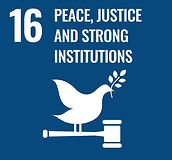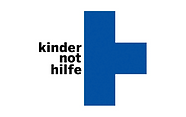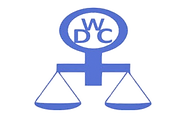
STRENGTHENING FUTURES
SUSTAINING COMMUNITIES
INSPIRING CHANGE

The Sri Lanka Centre for Development Facilitation (SLCDF), established in 1987, is a nationally recognized non-profit organization committed to addressing poverty and inequality through participatory, community-driven development. Currently operating within a robust network of 15 district consortia, over 40 NGOs, and 120 community-based organizations, SLCDF emphasizes capacity building, gender equity, environmental stewardship, and the empowerment of marginalized groups.
Through its integrated and collaborative approach, SLCDF has transformed localized initiatives into sustainable, large-scale interventions that foster resilience, accountability, and self-reliance. With more than three decades of experience, the organization continues to serve as a catalyst for civil society engagement and a trusted partner in promoting equitable and sustainable human development in Sri Lanka.
Impact in a Snapshot
15,000+ lives touched directly
Strengthened civil society networks across 15 districts
Promoted women’s empowerment, food security, child protection, and community resilience
Built lasting local capacity through self-help groups, NGOs, and grassroots leaders
Previous Collaboration
213+
NGO'S
3000+
CBO's
15+
DC's
Currently Collaborating with
40+
NGO'S
120+
CBO's
750+
SHG's
15+
DC's
Vision
A just, resilient, and sustainable society where empowered communities flourish and drive change.
Building and strengthening the networks of CBOs and Voluntary Service Organizations to address the rural poverty and other social and economic issues
Our
Uniqueness
For over three decades, the Sri Lanka Centre for Development Facilitation (SLCDF) has served as a trusted catalyst for social transformation and community resilience across Sri Lanka. Engaging marginalized populations through strategic partnerships with self-help groups, community-based organizations, NGOs, and district-level networks, SLCDF advances inclusive and participatory development. Our work is grounded in principles of community empowerment, rights-based approaches, advocacy, and evidence-informed, policy-driven strategies for sustainable human development.
From poverty alleviation and institutional capacity building to disaster response and post-conflict recovery, SLCDF has consistently demonstrated leadership during critical junctures, including the 2004 tsunami, the civil conflict, and the COVID-19 pandemic. What distinguishes SLCDF is its extensive grassroots presence and enduring commitment to fostering resilient, self-reliant communities capable of shaping their own futures.
Our Focus Areas

No Poverty

Clean Water and sanitation

Zero Hunger

Decent work and economic Growth

Good Health and Well - Being

Responsible Consumption and production

Quality Education

Climate Action

Gender Equality

Peace, Justice and strong institutions
Strategic Outcomes
Capacity Building of Organizations and Networks
Strengthen and Diversify Resource Mobilization
Community Wellbeing and Social Recognition
Research, Policy, and Advocacy
Accountability and Effective Governance and Management
Latest news

Revitalizing Ancient Reservoirs for Sustainable Agriculture in Anuradhapura
Renovation work is underway across tanks in Thirappane, Mihintale, Rambeva, Nachchiduwa, and Kahatagasdigiliya to enhance water capacity, protect the environment, and support local farmers.
Restoring tanks such as Nellikulama and Peenagama strengthens the irrigation network and boosts sustainable agricultural productivity in the region.
![IMG-20250915-WA0106[1].jpg](https://static.wixstatic.com/media/f65d9d_e18816759f394191995495dbf6f4b6fb~mv2.jpg/v1/fill/w_300,h_214,al_c,q_80,usm_0.66_1.00_0.01,enc_avif,quality_auto/IMG-20250915-WA0106%5B1%5D.jpg)
Providing Homes for the Telugu Community
A new housing project was launched on September 10 in Ulpathwewa Telugu Village, Mihintale, to support marginalized Telugu families. With Rs. 8 million in funding, the Palmyra Organization and SLCDF will build 20 houses, providing safe and dignified shelter.

Empowering Families for Child Protection
SLCDF, under the KNH-funded CREAM Project, held a 3-day TOT workshop on Parental Care, Child Rights & Positive Parenting in Monaragala from June 12–14, 2025. Led by expert Mr. Shakya Nanayakkara, 30 participants from Badulla and Monaragala were trained to promote violence-free, child-friendly communities.

World Environment Day 2025 – Harigala Lake, Buttala
Over 100 participants joined SLCDF, Monaragala DC, and Kumbuk River ECO Foundation to plant 480+ trees and raise awareness on protecting Harigala Lake. The event promoted reforestation and water conservation under the theme “Trees for Tomorrow, Water for Life.”

Bridging Hearts, Building Homes – DWC & SLCDF Volunteer Collaboration
The Sri Lanka Centre for Development Facilitation (SLCDF), in collaboration with Developing World Connections (DWC), Canada, has initiated the Community Housing Project in Welikanda, Kiriwandeniya GN Division. The initiative supports the construction of a secure and sustainable home for Mrs. W.A. Ruwini Madhushani, who lost her residence to a landslide six years ago. With the involvement of DWC volunteers and local community members, the project exemplifies a joint commitment to community resilience and development through collaborative action.
_JPG.jpg)
Strengthening Partnerships for Women’s Empowerment
On June 19, 2025, SLCDF held a partner meeting in Colombo under the EU-funded “Let the Women Decide their Destiny” project. Stakeholders reviewed progress, shared insights, and showcased women’s livelihood products. The event reaffirmed strong collaboration for women’s empowerment.

Awareness Sessions to Empower Women in Galnewa and Kekirawa
In May 2025, the SLCDF EU Destiny project empowered 240 women from 13 self-help groups in Galnewa and Kekirawa through targeted awareness sessions on gender equality, digital responsibility, civic engagement, and emergency response.

First Step Towards Strong Women's Federations in Badulla & Monaragala
From September 23–25, 2025, SLCDF held a 3-day Pre-Federation Training in Badulla under the CREAM Project to strengthen women's leadership and collective action. Supported by TLV, SEED, CEJ, and SHA (KNH), the training included a field visit to the Penguin Cluster Level Association in Passara. This marks a key step toward forming women’s federations by 2026.

Kapuhena Tank Renovation Launched in Nikaweratiya
The renovation of the Kapuhena Tank in Nikaweratiya was launched on July 15, 2025, with support from local authorities and farmer organizations. This initiative aims to enhance irrigation, boost agriculture, and strengthen rural livelihoods.

Strengthening Climate Resilience in Moneragala
SLCDF, with HOPE International and local partners, is restoring the Harigala Gama Tank in Buttala to support 40 farming families. Key works—canal construction, a shoe bridge, and land re-cultivation—are 65% complete. The canal was extended to 800m, doubling the original plan and boosting community resilience to climate change.
Funders
.png)



.png)
.png)


Partners
.png)

.png)
.png)
.png)




.png)


.png)



